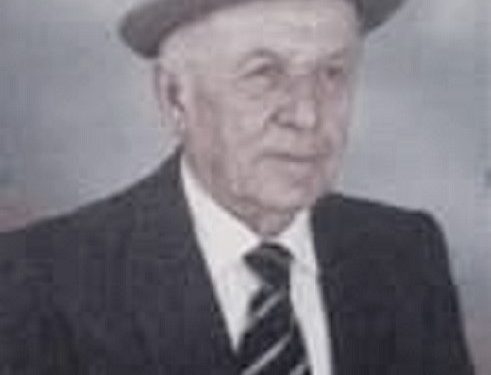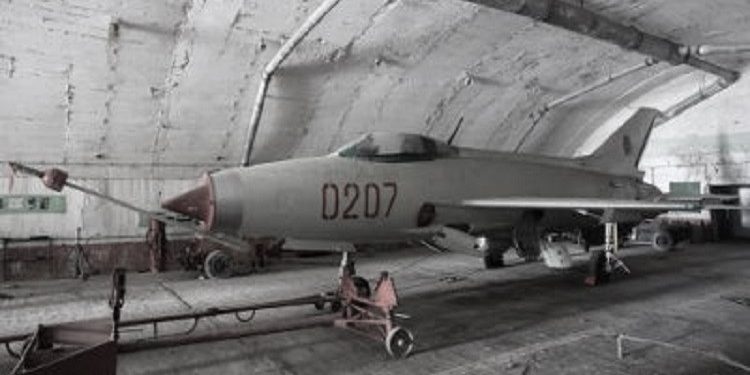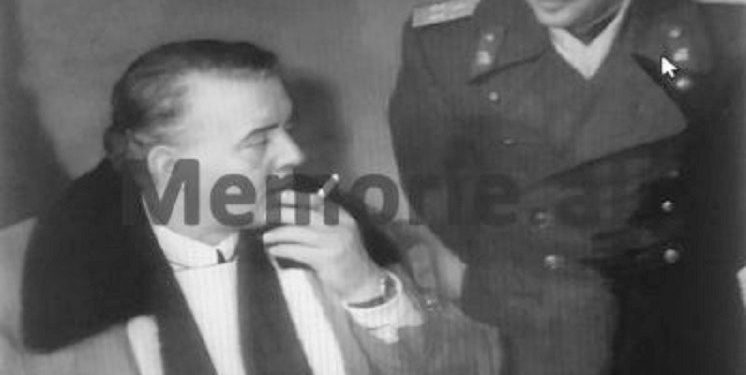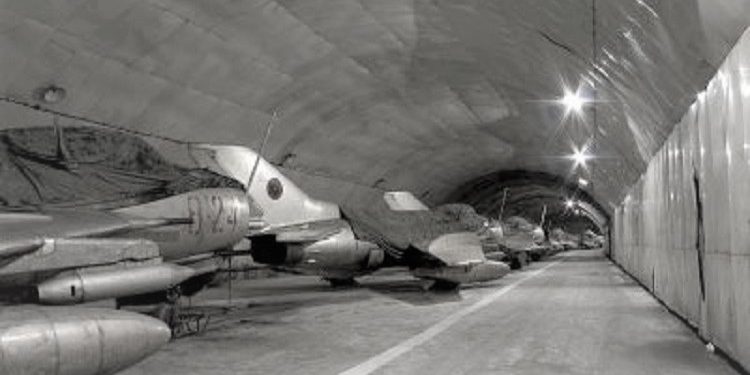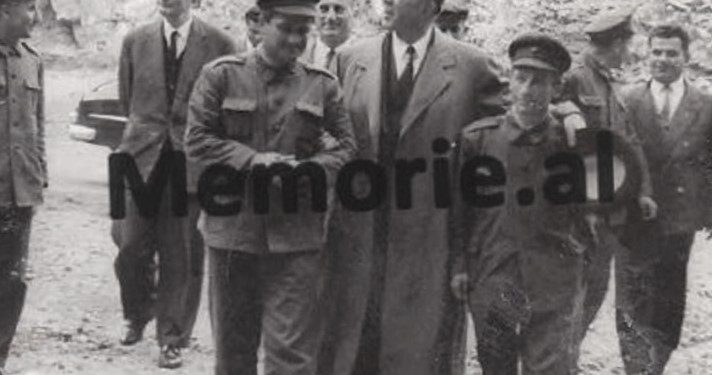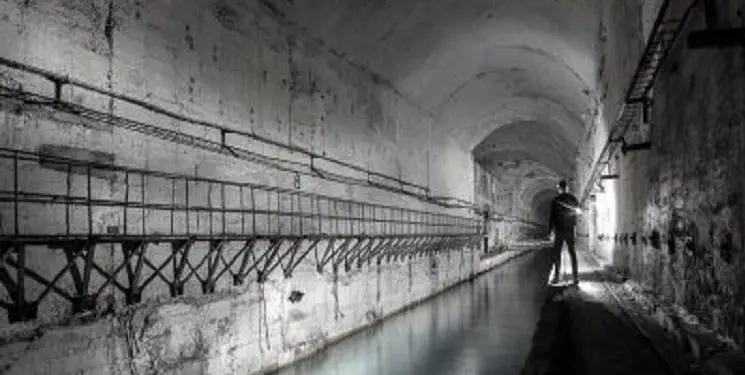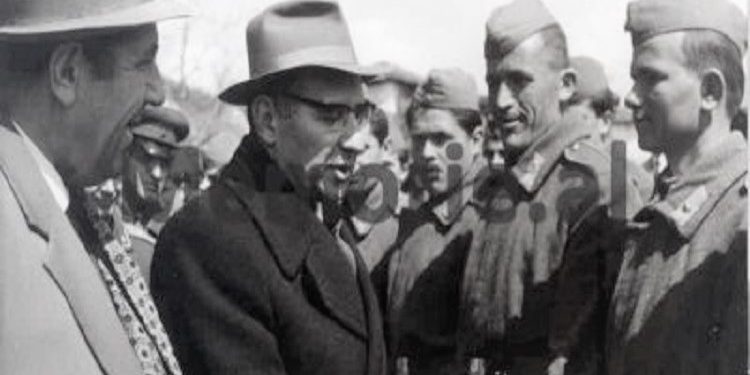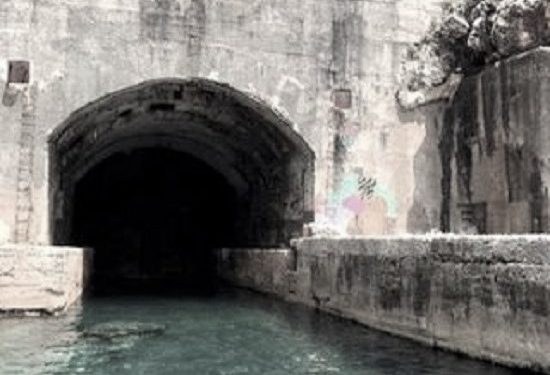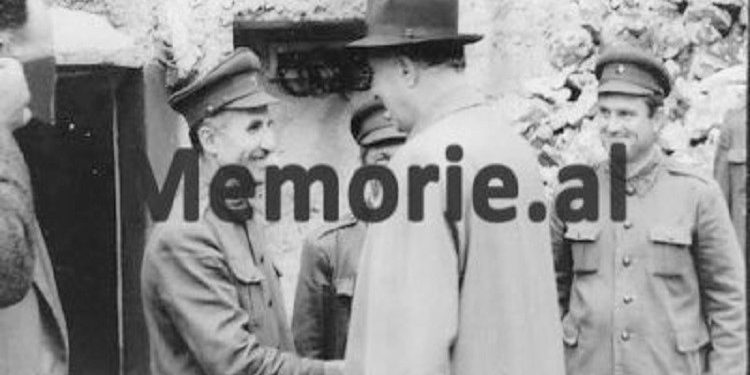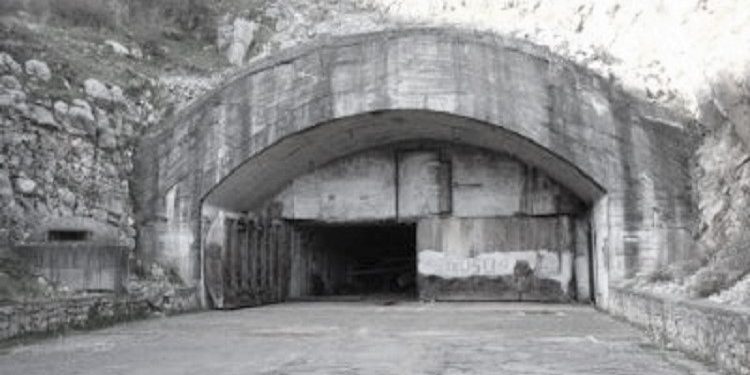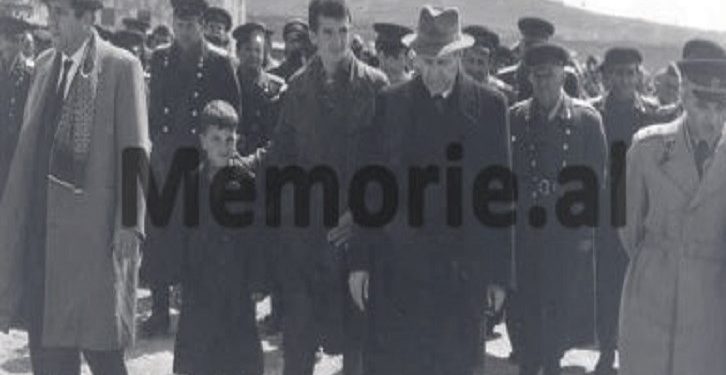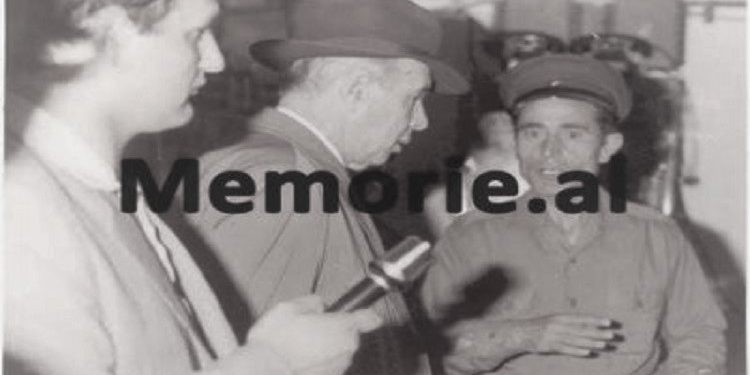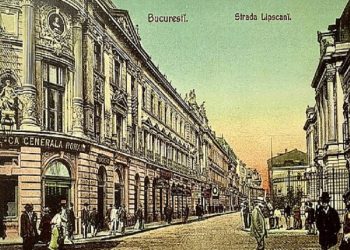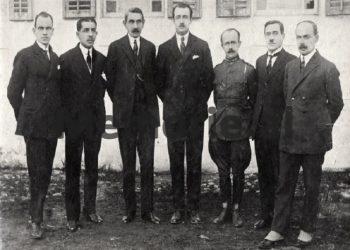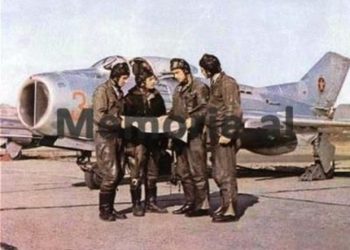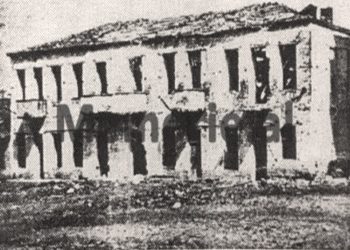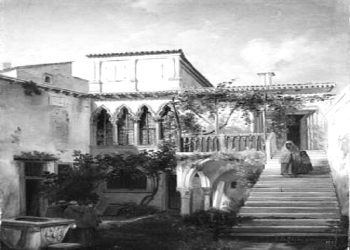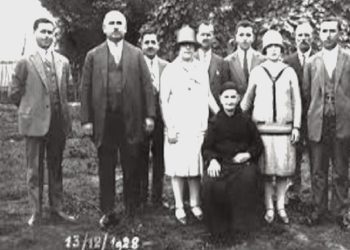Dashnor Kaloçi
Memorie.al publishes the unknown story of Colonel Josif Zegali, originally from Myzeqe, who won a scholarship from the government of King Zog and went to Italy, where he studied at the Institute of Agriculture, at the University “Antonio Zanneli” of Reggio- His return to the homeland to take part in the Anti-Fascist Movement, where together with his two brothers and uncles, the well-known Orthodox clergyman, Pope Joseph Zegali, became partisans in the ranks of Mehmet Shehu’s First Brigade and the 16th Assault Brigade. which was formed in Therepel of Skrapar, where they took part in all the fighting, until the battle for the liberation of Tirana, where Josifi met for the first time with his two partisan brothers, whom the family and the village knew were killed. of Joseph at the Kujbishev Military Academy in the Soviet Union in 1960 where he won a Gold Medal and returned home, where he was promoted to the rank of colonel at the age of 33, being appointed Chief of Staff. t of the Genius Headquarters at the Ministry of National Defense. Zegal’s testimonies of how he was charged with the construction of some of the most important military facilities of communist Albania, such as Gjadri Airport, Shengjin and Porto-Palermo Naval Base, Weapons Factories in Poliçan and Gramsh, etc., as and three anti-atomic shelters below the villas of Mehmet and Enver in the “Bllok” of the leadership in Tirana, where after their completion, he was arrested and convicted as an “accomplice” with the “Coup Group of Beqir Balluku”, suffered for years in Burrell Prison etc. The story told by Zegal, “Colonel Bunker”, which the famous director, Kujtim Çashku, turned into the film of the same name…!
“The fortification of the Bloc had started from the years 1967 – ’68, when Albania was preparing to leave and ‘de jure’ from the Warsaw Pact. In fact, its fortification had already begun, around 1959, but in those years, it began to be perfected according to projects made by highly trusted people and in the greatest secrecy. Thus, it was decided to build three main anti-atomic fortifications in the “Block” of the leadership, to withstand any blow: One for Enver Hoxha, one for Mehmet Shehu and the third common for all members of the Politburo and the Central Committee. of the ALP who lived inside the “Block”. Enver and Mehmet’s fortifications were built below their villas and Enver often went down the stairs of the house and put them down to see the progress of the works. This is what the retired colonel Josif Zegali, also known as “Colonel Bunker” (as he was one of the top military men of Xhenjo’s weapon and the main director of fortifications in the Ministry of National Defense), recalled. the beginnings of Enver Hoxha’s fortification in communist Albania and the work on anti-atomic shelters for the two main leaders of the Albanian state at the time. With a memory, health and energy that probably did not “frame” him at all with the years he had on his shoulder, after being interviewed by some very well-known and prestigious newspapers of Western Europe and the USA, he agreed to tell about us, telling the whole history and dramas of his life, which for Albanians, are more or less known from the work of the famous director, Kujtim Çashku, in the film of the same title, “Colonel Bunker”.
Communist with Gjin Marku in Berat since 1942
Josif Zegali was born in 1926 in the village of Mazhaj in Myzeqe, where his family originated, which for several generations was known as a family of Orthodox clergy. After his father died when he was very young, he grew up under the care of his uncle, Pope Ilia Zegali, one of the well-known Orthodox clergy of Myzeqe. “We kept the portrait of King Zog and the National flag in our house at that time, not only because we were a family with patriotic traditions, but because we respected the symbols of the state in the first place. Although we were a family of the Orthodox faith, we had many of the Naim Frashëri and Gjergj Fishta, which I took with me and read when I was little and went with cattle, and I read many of these, such as “Cattle and Agriculture” and “Lahuta e Malsisë”, with great pleasure, as well as today I can say most of them by heart “, Zegali recalled his childhood and the time of the reign of King Zog, about whom he said that he was unjustly thrown into the mud! After finishing his first lessons in his native village, Josifi went to Berat to the ‘School of Work’ for the branch of Agriculture, which he finished with excellent results in 1942. Based on the high results, the Italian Lugotenenca awarded a state scholarship, for the Institute of Agriculture “Antonio Zanneli” in Reggio Emilia, Italy. Although I was one of the first five to form the first communist cell in Berat (February 12, 1942), together with Kristo Isaku (“People’s Hero”) and Gjin Marku, I won that scholarship and left for Italy, at the Institute of Rexhio-Emilja, where I did not stay for more than three months “, Zegali remembers that time, when like many other Albanian students, idealists and patriots, he dropped out of school and returned to Albania to fight the fascist occupier. In January 1943, Josifi was a member of the guerrilla units of Myzeqe and then in June of that year, he joined various tasks in the Peza gang, where Myslim Peza and Mustafa Gjinishi commanded, as commissar. He was then assigned to the 16th Assault (Partisan) Brigade formed in the village of Therepel in Skrapar, and then in October 1944 was sent as an officer to foreign Anglo-Soviet-American allied missions near the General Staff. partisan of Enver Hoxha, of his provisional government in Berat.
At the “Kujbishev” Genius Academy of the Soviet Union
The end of the war, or November 28, 1944, found Zegal an officer with the rank of lieutenant, traveling to Tirana in Allied (Anglo-Soviet-American) mission vehicles to take part in the grand parade that took place that day in capital in front of the hotel “Dajti”. “On the day of the liberation of Albania, I also met my two partisan brothers (company executives and battalions in the First Assault Brigade commanded by Mehmet Shehu and Tuk Jakova), Kozmanë and Thimin, who we had unseen for a long time, and in family and village, they knew they were killed “, Zegali recalled, adding that together with the three of them, their first partisan and cousin, their uncle (who had him as a father) Pope Ilia Zegali, came out, who was killed in the war and later declared “Martyr of the Fatherland”. After working for a while in BRASH, with the youth (the organization of the Anti-Fascist Youth Union of Albania), with the intervention of Nako Spiro, Josifi was assigned to the Military Division of Korça, where he worked as chief of staff, until January 1946, when he left for studies in the Soviet Union, near the Military Engineering School. He finished this high school with high results in June 1948, from where he returned to Tirana, as one of the main cadres of Xhenjo’s weapon, at the Ministry of Defense. After working for almost six years in the Genoa branch of the Ministry, in 1954, Joseph left again to study in the Soviet Union, at the Military Academy “Vladimir Kujbishev” in Moscow, in the branch of Military Engineering, which he graduated with honors. excellent, receiving the Gold Medal in 1960. After studying in Moscow, Zegali returned to Tirana and received the rank of Colonel, when he was not more than 33 years old, being appointed Chief of Staff of Genoa for the entire Albanian Army.
Builds Poliçan and Gramsh Armament Plants and Gjadri Airport
After being appointed to that position, Colonel Zegali was assigned the task of building military plants in Poliçan and Gramsh, as well as in some other secret facilities of special importance, which were subordinated to the Ministry of People’s Defense. Regarding this, Zegali recalled: “At the time I took that task, I went and saw the place where we would start the construction. There in Poliçan, the Prime Minister Mehmet Shehu came to me accompanied by the Chief of General Staff of the Army, Petrit Dumja, and from there after we participated in the liberation of Skrapar, where Mehmet denounced Khrushchev for the first time, we went to the villages and mountains for in Gramsh, where the military plant would be built. During those visits, Mehmet Shehu asked me how long I would build the Poliçan Arms Factory. After I told him the deadline which was about four and a half years, he remained satisfied. In fact, it was, that facility was built as long as we envisioned it. “After the construction of these plants, I participated as the main director of works at the Gjadri Air Base and the Shengjin Naval Base, which we built with the great help of Chinese engineers and specialists”, Zegali recalled those years when he worked in two of the largest and most modern military works of that time. Regarding the Gjadri Military Airport where he had “under entry” over 55 Chinese engineers and specialists, he admits that that work cost more than the Fierza Hydropower Plant. “For the construction of these facilities, have worked with dozens of very talented specialists, engineers and military and I say without boast, that we have done a commendable job, which is worth praising today. Then it was the Cold War and like all other states and we built our defensive fortifications. For the expenses and cost of those facilities, then it was not seen much to save, because they were military facilities and the defense of the homeland was considered as: “duty above all duties”. So, on one of my visits to China at the time, we made a contract with the Chinese side, where I signed a staggering high-quality iron figure, which they awarded us for the construction of our fortification facilities. Then we did a colossal job and those military bases were among the most modern and the last word of the science of armies that left nothing lacking to the bases that the easterners had. Their realization made Albania one of the most fortified countries in the world “, said the retired colonel, and modestly and in a low voice, he added that at that time for that good work, he was also nominated for” Hero of Socialist Labor ” and Professor of Military Science, but he never got it, because instead of those titles, he was given the title “enemy of the people” and ended up in the cold cells of Burrell’s prisons, and in the mining galleries. , what had done the talented engineer and manager of the largest factories and military works of Albania that was declared an enemy?
Fortifies the “Block” of leadership in Tirana
After the completion of the factories and military works, Zegali returned to Tirana and was appointed as one of the main leaders for the fortification of the “Bllok” of leadership. In this regard, he recalled: many years ago, but around 1966-67 he began to perfect himself. Unlike the military bases of Gjadri, Porto-Palermo and Shengjin, which were built with the help of the Chinese, the fortifications of “Bllok” in Tirana were built without their help and knowledge. It was designed by a very limited and trusted number of people from the Institute of Military Studies, and was built by the Army Genghis, where I was the second person to lead it, after Mendu Backa who was the Deputy Minister of National Defense, General -Major, “People’s Hero” and “Hero of Socialist Labor”, later hit as “coup”. It was settled there and work began on three main fortifications: One belonged to Enver Hoxha, the other to Mehmet Shehu, and the third was for the other members of the Politburo and those of the Central Committee of the ALP living within the “Bloc”. The fortifications of Enver and Mehmet were built below their villas, and both the construction managers and all the civilian staff of the workers were all inspected and approved by the State Security, and in those local fortifications, mainly work was done. In those periods when Enver and Mehmeti went on vacation outside of Tirana, such as in Dajt, Pogradec and Vlora, this was done so that they would not be bothered by the noises, no matter how small they were, but there were many cases when the works continued even during while Enver and Mehmeti were there in their villas. Once, Enver often went down the stairs of his villa and came down to the fortification shelter to see the progress of the works. I was often present in them his visits and I accompanied and conversed with him inside those fortifications. He gave the impression of a great leader and very good-natured. He asked us about various problems and never remarked to us. He often told us: “Tell us what your demands are, what you need, because the Party will help you and fulfill all of you.” (From those meetings, save this color photo, which Enver then sent me with Sulo Gradec, where he is sitting at the table and I on foot, dressed military with the rank of colonel, explaining to him the project of the shelter below his villa.) Those shelters that were built in the “Block” were so modern for the time, that they left you with nothing lacking and those of Eastern Europe, and were probably of better quality than them. They were with anti-atomic valves, that as soon as the shock was heard, they closed automatically. Only a limited number of people knew about the construction of those main fortifications in the “Block”. There he could not dare to violate any of the other members of the Politburo, except Mehmet, Beqir, Kadri and Petrit Dumen. In addition to the eastern experience of China, North Korea and Vietnam, in the construction of fortifications and shelters that we built at that time in “Bllok” and on the outskirts of Tirana, we also had Western experience. Thus, I have often gone to some Western countries, sent directly by Mehmet Shehu or Beqir Balluku, ostensibly disguised with various missions, but in reality, my mission was to observe and gather experience and see everything from the technique of realizing the military facilities and shelters that these countries had “, Zegali recalled those times and was a little silent. But in which western countries had he gone, how was he camouflaged, what were the tasks given by Shehu and Balluku, how did he accomplish them travels and what could he gather from those top-secret missions and of special importance? Our insistence on knowing about these missions even though many years have passed and the Cold War chapter has been closed, retired Colonel Josif Zegali, refused to “give” more?! “Those were missions that had to do with state military secrets and despite the fact that a long time has passed and they have changed the political systems, they still have to remain like that,” Zegali told us and tactfully changed the direction of his conversation and testimony., hinting, that it was useless to “bite” him back in that place! /Memorie.al
Continues tomorrow




